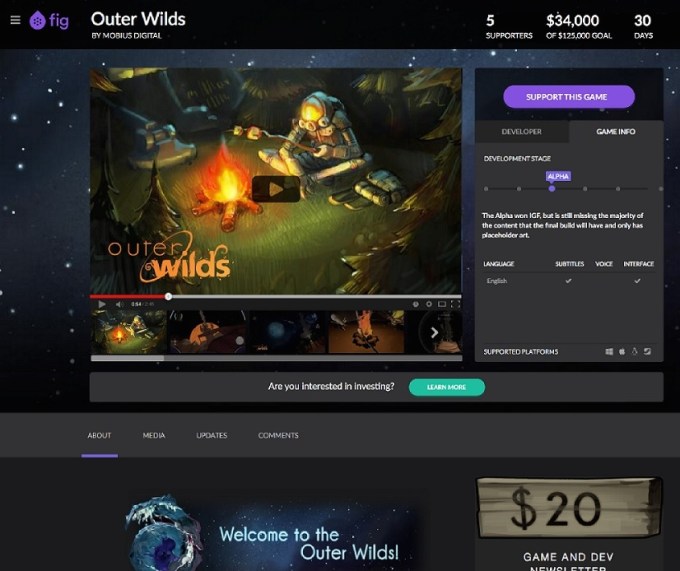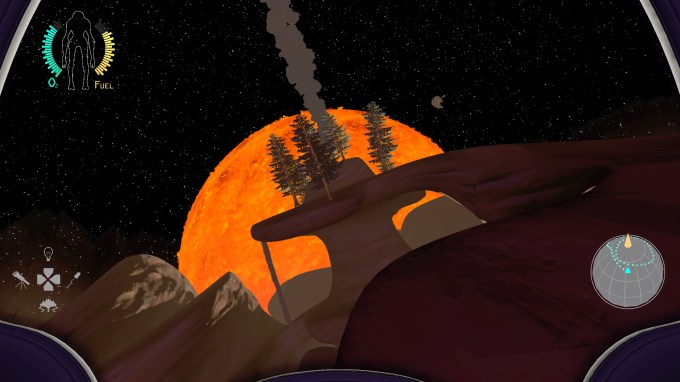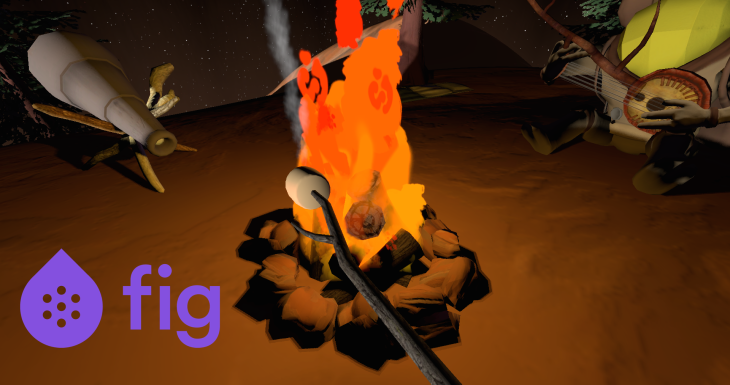A conspiracy has been hatched by the world’s top Triple-A and indie developers to change the way computer games are financed. It’s called Fig. It’s a highly curated reward and equity crowdfunding funding platform just for games.
Each month, Fig will debut one major studio title and one independent release, and already has campaigns lined up from lauded studios like Obsidian Entertainment, inXile Entertainment and Double Fine. Fans can fund games to earn traditional rewards like downloadable content or a chance to meet the developer.
But if developers want, they can allow “accredited investors” with net worths over $1 million to invest at least $1,000 in exchange for a share of the game’s revenue. Eventually, Fig hopes to employ the JOBS Act crowdfunding regulation to let anyone, not just the very rich, invest in games for equity.

Today Fig launches with a campaign to raise $125,000 for Outer Wilds, the unfinished game that won the 2015 Independent Games Festival Awards’ Grand Prize. If you know the Bill Murray film Groundhog Day (or Tom Cruise’s Edge Of Tomorrow), this first-person adventure game is a lot like that. Save the world before you die, or wake up at the start of the same day and try again with newfound knowledge.
Rewards range from $20 for a copy of the game to $10,000 for an IRL adventure with the game’s developer Mobius Digital’s team including TV show Heroes’ star Masi Oka. But starting at $1,000, people can also invest for equity in the game and earn money if it’s a hit.
Here’s a video announcing Outer Wilds on Fig:
Why Ditch Kickstarter?
Because games are outgrowing one-size-fits-all crowdfunding sites. One game called Star Citizen raised $2 million on Kickstarter before going on to raise a whopping $85 million more on its own website where it had more control over the funding.

Fig CEO Justin Bailey
Fig CEO and “Psychonauts” game studio Double Fine COO Justin Bailey tells me “The current leading platforms, they’re meant to be everything to all different industries. The campaign structure has to work as well for taxidermy as it does for $5 million video games.”
So Bailey raised funding from Spark Capital and assembled a team of advisors from the leaders of crowdfunded gaming. Those include Feargus Urquhart of Fallout developer Obsidian, Wasteland 2 developer inXile’s Brian Fargo, and Tim Schafer from Bailey’s company Double Fine, which made Brutal Legend.
Together, they built Fig, which is named after the Hotel Figuroa in LA where developers stay for the E3 gaming conference. Bailey tells me he “ran [Fig] by the top 10 game developers on Kickstarter and they’re for it.”
So how exactly is it different? Fig has a dark theme like Steam, where many of the games it funds might eventually be sold. It’s aggressively curated so you only see high-potential titles. It’s built around a development timeline that lets backers know how far along the game is. Fans can easily assemble bundles of different digital content rewards. And if they upload the necessary documents and legal info and put in at least $1,000, they can earn money if the game does.
For comparison, Kickstarter is overrun by games so it’s tough to know what’s worth funding. Cobbling together digital content bundles is awkward, discouraging pledges. And Kickstarter doesn’t offer equity crowdfunding. At its core, Fig is designed for flexibility, and can mold to the games it hosts.
The risk is that without the Kickstarter or Indiegogo brand name, Fig might see less traffic. But Bailey insists that “97% of traffic coming into a crowdfunding campaign comes from the creators”, and since these developers have cult followings, getting games in front of potential backers shouldn’t be too tough.

Outer Wilds screenshot
Fig could provide a more reliable way to invest in games. Funding whole studios can be dicey, because it’s tough to know if they’ll strike gold again and successfully follow up on a past blockbuster. It could also prevent disgruntling tales of crowdfunding projects like Oculus, where its early backers received no compensation when Facebook bought the company for $2 billion.
If Fig succeeds, it could free game developers from some of the need for traditional capital, and let them be funded by the people who love them.
